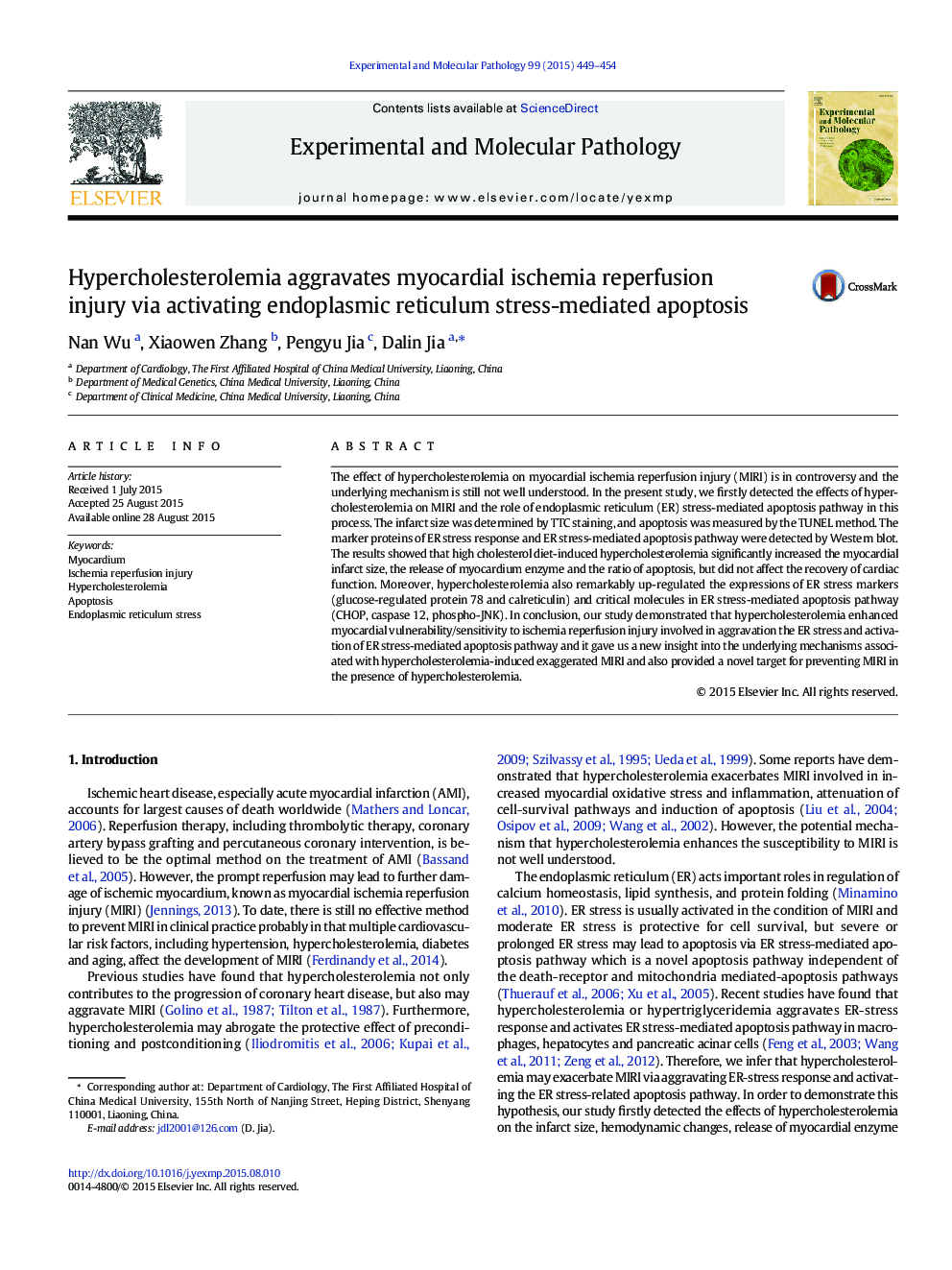| Article ID | Journal | Published Year | Pages | File Type |
|---|---|---|---|---|
| 2774880 | Experimental and Molecular Pathology | 2015 | 6 Pages |
•Hypercholesterolemia aggravates myocardial ischemia reperfusion injury.•Hypercholesterolemia is involved in the excessive apoptosis.•Hypercholesterolemia leads to dysregulation of ER stress.•Hypercholesterolemia leads to activating ER stress-mediated apoptosis pathway.
The effect of hypercholesterolemia on myocardial ischemia reperfusion injury (MIRI) is in controversy and the underlying mechanism is still not well understood. In the present study, we firstly detected the effects of hypercholesterolemia on MIRI and the role of endoplasmic reticulum (ER) stress-mediated apoptosis pathway in this process. The infarct size was determined by TTC staining, and apoptosis was measured by the TUNEL method. The marker proteins of ER stress response and ER stress-mediated apoptosis pathway were detected by Western blot. The results showed that high cholesterol diet-induced hypercholesterolemia significantly increased the myocardial infarct size, the release of myocardium enzyme and the ratio of apoptosis, but did not affect the recovery of cardiac function. Moreover, hypercholesterolemia also remarkably up-regulated the expressions of ER stress markers (glucose-regulated protein 78 and calreticulin) and critical molecules in ER stress-mediated apoptosis pathway (CHOP, caspase 12, phospho-JNK). In conclusion, our study demonstrated that hypercholesterolemia enhanced myocardial vulnerability/sensitivity to ischemia reperfusion injury involved in aggravation the ER stress and activation of ER stress-mediated apoptosis pathway and it gave us a new insight into the underlying mechanisms associated with hypercholesterolemia-induced exaggerated MIRI and also provided a novel target for preventing MIRI in the presence of hypercholesterolemia.
